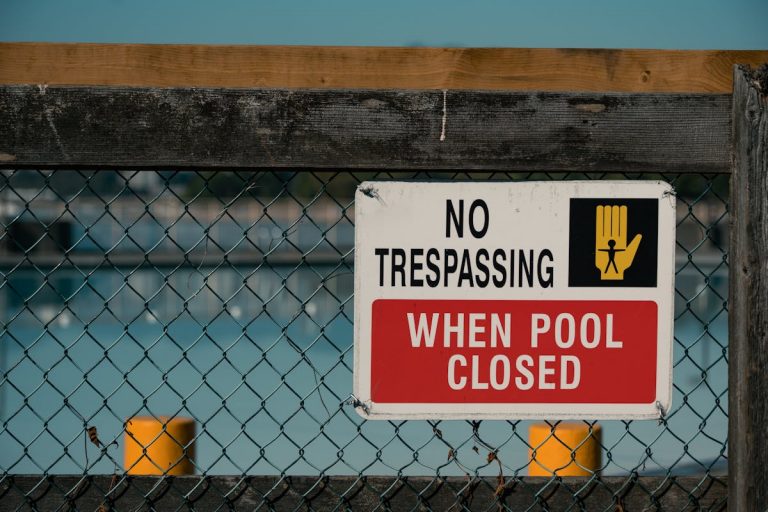In the complex domain of law, the intersection of criminal responsibility and mental health, particularly the inclusion of amnesia as a defense, presents an intriguing quandary. While amnesia potentially disrupts a defendant’s ability to form intent or recall actions, its acceptance as a valid defense is met with considerable skepticism. This skepticism stems from the challenge of substantiating claims of memory loss and the implications it bears on the defendant’s culpability. As a result, despite the element of genuine amnesia, it does not axiomatically exonerate one of criminal charges. Yet, it may be worth pondering, does this call for a reevaluation of the judiciary’s approach to such cases?
Understanding Amnesia
Amnesia, a complex neurological disorder, is a significant cornerstone in comprehending the relationship between memory and criminal liability. The causes of amnesia range from traumatic brain injuries, diseases, to psychological factors, all substantially impacting different types of memory, such as episodic, semantic, and procedural. Understanding these intricacies is vital in examining the potential use of amnesia as a defense in criminal cases. The disorder’s complexity can disrupt the retrieval of memory, challenging the accused’s ability to effectively participate in their defense or even recall the incident in question. As a result, a deeper understanding of amnesia and its effects on memory can lead to a more nuanced approach to its application within the criminal justice system.
Legal Framework for Defense
While the legal landscape surrounding the use of amnesia as a defense to criminal charges is complex, it hinges on several key principles within criminal law. Amnesia legislation falls under the broader umbrella of mental health law, specifically as it pertains to the mental state of the defendant at the time of the crime. This legislation, however, is fraught with ambiguities. For an amnesia defense to be considered valid, it must be proven that the defendant was incapable of forming intent due to their memory loss. This necessitates a nuanced understanding of mental health and its impact on cognitive functions. Yet, the lack of concrete, universally-accepted guidelines regarding amnesia as a defense presents a significant challenge, warranting further examination and reform.
Landmark Cases Involving Amnesia
Analyzing landmark cases such as “R V. Parks”, “State V. Porter”, and “People V. Weinstein” provides critical insights into the legal intricacies surrounding the use of amnesia as a defense in criminal charges. These cases, each with unique circumstances and outcomes, greatly influenced the legal perspective on this topic. By examining these judgements, we can capture a well-rounded understanding of how courts navigate this complex and controversial issue.
“R V. Parks” Case
The “R v. Parks” case is a benchmark in the intersection of criminal law and amnesia implications. The Parks defense principally revolved around the argument that the defendant, having committed the alleged crime while sleepwalking, was not consciously aware of his actions, thereby invoking a form of amnesia. This case highlighted the potential for amnesia to be used as a defense, under specific conditions. The courts acknowledged the validity of the defense, setting a precedent that amnesia, in particular forms, may absolve defendants of criminal responsibility. However, the Parks defense also underlined the necessity for rigorous scientific evidence to support claims of amnesia, ensuring that this defense could not be manipulated or misused. This case greatly impacted the interplay between criminal responsibility and cognitive disorders.
“State V. Porter” Ruling
Moving from the Canadian legal landscape to the United States, another significant case that utilized amnesia as a defense is the “State v. Porter” case. In this landmark ruling, Porter’s amnesia was considered relevant to his ability to participate in his own defense, a fundamental right under U.S. law. The court agreed that his amnesia could impair his ability to provide a factual account, cross-examine witnesses, or introduce mitigating evidence. This case set important legal precedents in acknowledging the potential of amnesia to infringe on a defendant’s right to a fair trial. Consequently, this analytical look at the Porter case reveals that amnesia can indeed be a persuasive defense, further exemplifying the complex relationship between law and memory disorders.
“People V. Weinstein” Verdict
A third pivotal case that adeptly illustrates the use of amnesia as a defense to criminal charges is “People v. Weinstein”. The Weinstein trial presented a unique quandary as the defense bridged psychological theory with legal argument. The defendant claimed amnesia, asserting he couldn’t recall the crime, thereby challenging the standard legal principles. The jury deliberations were protracted, reflecting the complexity of such a defense. Many questioned the validity of amnesia as a legitimate defense, while others argued for its recognition, emphasizing the scientific evidence supporting memory loss in traumatic events. This case underscored the need for an ongoing dialogue between the legal and psychological fields to guarantee justice is served in such intricate circumstances.

Psychological Perspectives on Amnesia
From a psychological standpoint, amnesia is not a monolithic condition but rather consists of various types, each with its unique impact on behavior. The severity and nature of these impacts raise significant questions regarding their legal implications, particularly in the context of criminal charges. Hence, a thorough examination of amnesia’s psychological dimensions is essential for a nuanced understanding of it as a possible defense in criminal law.
Understanding Amnesia Types
In the domain of psychology, amnesia is far from being a singular, homogeneous condition. It encompasses a spectrum of disorders, each with their unique characteristics and triggers. One such type is retroactive amnesia, where new memories overwrite old ones, creating a blank in the victim’s memory. This form often results from severe psychological stress or trauma. On the other hand, traumatic amnesia occurs after a physical brain injury, such as a blow to the head. The severity and duration of memory loss depend on the extent of the injury. Understanding these nuances is fundamental in determining the validity of amnesia as a defense to criminal charges, as each type might impact a defendant’s cognitive capacity differently.
Amnesia Impact on Behavior
Often overlooked in casual conversation, amnesia holds profound implications on an individual’s behavior, particularly from a psychological perspective. Memory loss, a key symptom of amnesia, can greatly alter one’s actions and responses to stimuli. The inability to recall past experiences can lead to behavior changes, such as increased anxiety or unpredictability, fundamentally altering an individual’s personality. The psychological impact of living in a state of continuous uncertainty can generate stress, contributing to further cognitive impairment. From a therapeutic perspective, understanding these behavioral alterations is essential for developing effective treatments. Therefore, it is important to acknowledge the profound impact of amnesia on behavior, emphasizing the need for further research in this area.
Legal Implications of Amnesia
While it may seem far-fetched to some, the condition of amnesia has significant legal implications, particularly in the field of criminal law. Amnesia can directly influence a defendant’s ability for memory retrieval, thereby affecting their capability to provide a reliable testimony. In such cases, a cognitive assessment becomes essential to determine the extent of memory loss and its impact on the defendant’s understanding of the charges against them. This assessment can provide critical insights into whether an individual can legitimately use amnesia as a defense. It is vital for law practitioners to acknowledge the psychological perspectives on amnesia and to integrate them into the legal framework, ensuring justice is served while respecting the neurological conditions of the accused.
Amnesia’s Impact on Criminal Responsibility
Given the complexity of the legal system, it is essential to understand the impact of amnesia on criminal responsibility. The phenomenon of amnesia poses challenging questions. Does a genuine inability to recall events absolve a person of their actions? The answer is far from straightforward. Memory distortion, a common occurrence in amnesia recovery, complicates this further, blurring the line between fact and fiction. While amnesia may impede the accused’s ability to provide a thorough defense, it does not necessarily absolve them of criminal culpability. The courts generally assert that a lack of memory doesn’t eliminate accountability. Ultimately, the influence of amnesia on criminal responsibility is a complex issue requiring careful consideration and balanced judgment.
Ethical Implications of Amnesia Defense
Steering through the ethical implications of an amnesia defense presents a uniquely challenging task. Balancing the scales of justice requires a careful examination of ethical considerations surrounding this defense. A cornerstone of our legal system is that individuals should be held accountable for their actions; yet how does one reconcile that with a defendant who genuinely cannot recall their actions? This prompts the inquiry of moral responsibility. Can a person be held morally responsible for actions they cannot remember committing? Some argue that, even with amnesia, an individual’s inherent character led to the criminal act. Others counter that moral culpability requires awareness, which amnesia eradicates. Hence, the amnesia defense stirs complex ethical and legal debates.
Amnesia Defense: Success and Failure
How often has the amnesia defense led to a successful acquittal in a court of law? The answer lies in understanding the interplay of amnesia prevalence and the court’s perception of this defense. Amnesia, although not rare in criminal cases, is seldom used as a primary defense due to prevailing amnesia misconceptions. Courts often view it skeptically, associating it with deceit or malingering. Successful outcomes are therefore rare, but not unheard of, particularly when expert testimony clarifies the nature of amnesia. Conversely, failure often results from the court’s mistrust or insufficient substantiation. Hence, the success or failure of the amnesia defense is largely contingent on dispelling misconceptions and demonstrating the authenticity of the amnesic condition.
Future of Amnesia in Legal Defense
The future of amnesia as a legal defense hinges on the legal community’s ability to understand and apply medical and psychological knowledge. As forensic psychiatry and neuroscience progress, the judicial system’s understanding of amnesia will inevitably deepen, potentially altering its stance on this defense. Future implications of this evolution may see an increased recognition of amnesia’s complex nature, leading to more nuanced judicial considerations. The court may develop a more refined approach, balancing the rights of the accused with the necessity to deliver justice. However, this path depends on maintaining an open dialogue between the legal and medical communities. Consequently, the future of amnesia in legal defense is not a predetermined path but an evolving journey driven by our collective knowledge and understanding.
Frequently Asked Questions
What Are the Different Types of Amnesia?
There are several types of amnesia including psychogenic and retrograde amnesia. Psychogenic amnesia involves forgetting personal information, while retrograde amnesia concerns loss of memories prior to a traumatic event or condition.
What Triggers Amnesia in a Person?
Amnesia can be triggered by various factors including brain injury, stroke, or substance misuse. Psychological factors, such as experiencing severe emotional trauma, can also cause memory loss, resulting in different forms of amnesia.
How Is Amnesia Diagnosed and Treated?
Amnesia is diagnosed through thorough memory assessments and clinical evaluations. Treatment primarily involves therapeutic approaches, aiding patients in memory retrieval and developing compensatory strategies for memory loss, tailored to the individual’s specific condition and needs.
What Is the Public Perception of Amnesia as a Defense?
Public opinion on amnesia as a defense varies. While some perceive it as a legitimate condition with legal implications, others view it skeptically, potentially associating its use with deceptive tactics to evade justice.
Are There Specific Crimes Where Amnesia Defense Is More Commonly Used?
Amnesia defense is more frequently employed in severe cases such as murder, where memory loss could greatly impact the defendant’s ability to recall events. However, it’s less common in crimes like theft due to its lower stakes.





